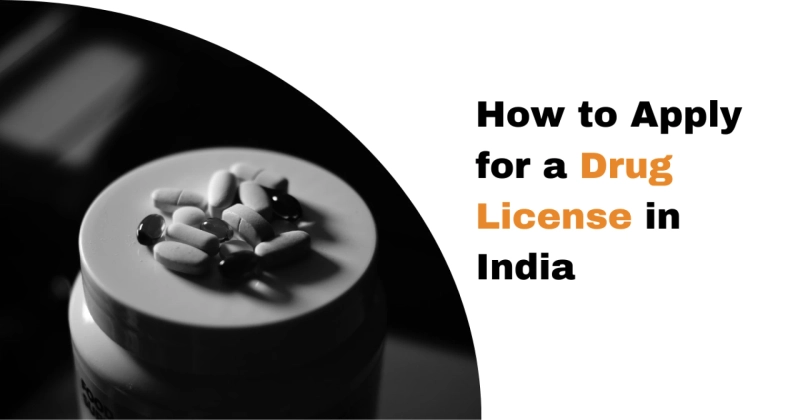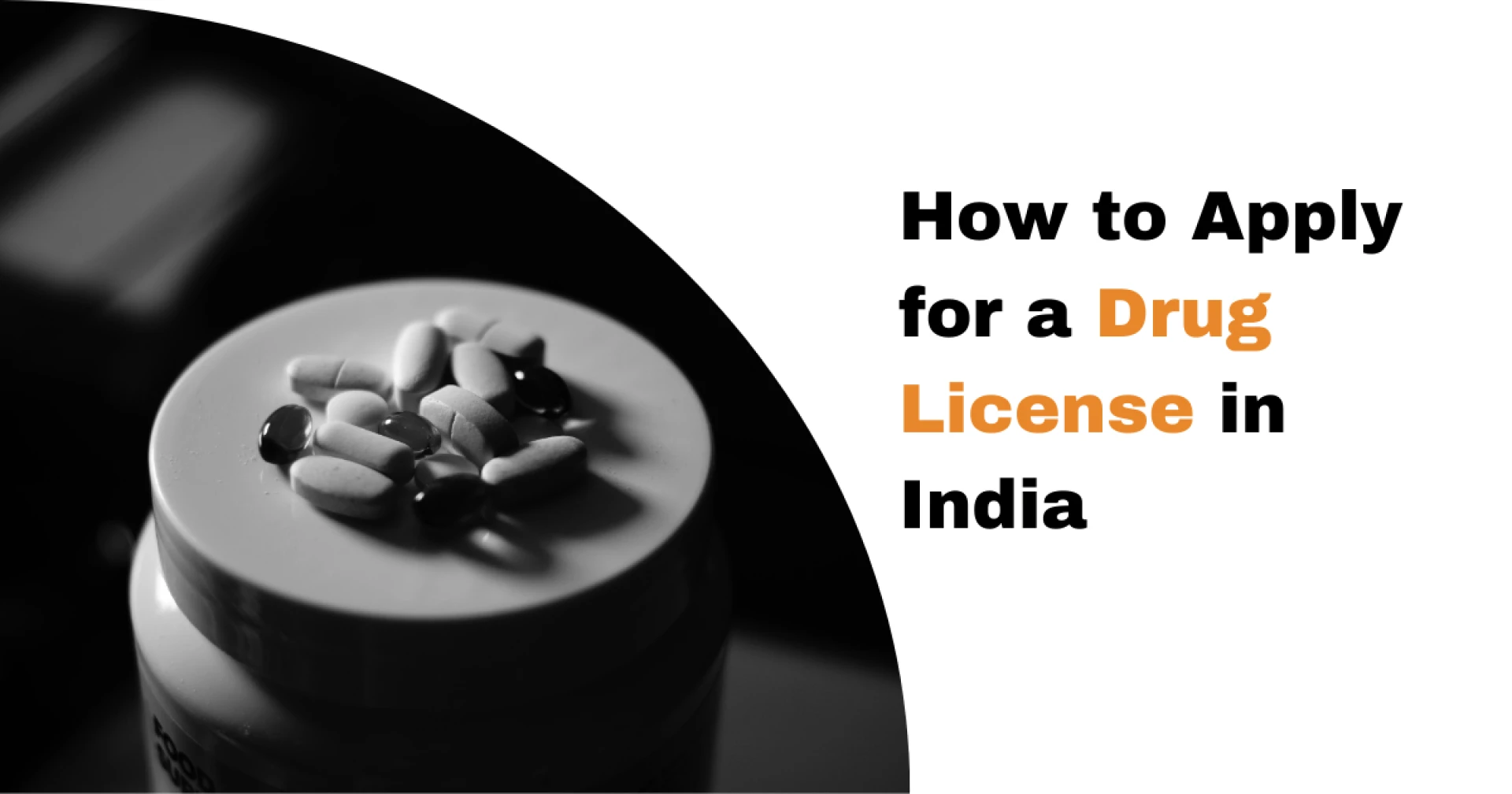What is Drug License
A drug license is a required permit for businesses or persons involved in the manufacture, sale, importation, or distribution of drugs in India. This license ensures the quality, safety, and effectiveness of the country's pharmaceutical products.
Types of Drug Licenses in India:
Manufacturing License: Given to pharmaceutical firms so they can make medications.
Wholesale License: Issued to businesses involved in the wholesale trade of drugs.
Retail License: mandatory for pharmacies and drug outlets that offer pharmaceuticals to the general public.
Import License: Necessary for importing drugs from other countries.
Export License: Essential for exporting medications to other countries.
Steps to Apply for a Drug License in India:
- Determine the Type of License: Identify the specific drug license you require based on your business activities.
- Check Eligibility Criteria: Ensure you meet the eligibility criteria set by the concerned licensing authority.
- Gather Necessary Documents: Prepare all the required documents, including:
- Application form
- Proof of identity and address
- Qualification certificates (if applicable)
- Experience certificates (if applicable)
- Photographs
- Site plan and layout of the premises
- NOC from local authorities
- Police verification
- Payment of fees
- Submit Application: Apply along with the required documents to the designated licensing authority.
- Inspection: The licensing authority will inspect your premises to ensure compliance with the required standards.
- License Issuance: Upon successful inspection and approval, the licensing authority will issue the drug license.
Documents needed to obtain a wholesale drug license
Here are some of the key documents generally required to obtain a wholesale drug license in India:
- Application Form: Duly filled out the application form as per the prescribed format.
- Proof of Identity and Address:
- Proprietor/Partners/Directors: Identity proof (Aadhaar Card, Voter ID, PAN Card, etc.) and address proof (Aadhaar Card, Passport, Driving License, etc.)
- Registered Pharmacist: Identity proof and address proof.
- Educational Qualifications:
- Proprietor/Partners/Directors: Educational certificates (if applicable).
- Registered Pharmacist: Diploma or degree in Pharmacy from a recognized university.
- Premises-Related Documents:
- Ownership/Lease: Ownership documents (if owner) or lease agreement with the property owner.
- Blueprint/Layout Plan: Detailed plan of the premises, including storage areas, office space, etc.
- NOC from Local Authorities: No Objection Certificate from the local municipal corporation or panchayat.
- Electricity Bill: Recent electricity bill of the premises.
- Registered Pharmacist Details:
- Affidavit of the registered pharmacist.
- Registration certificate of the pharmacist with the State Pharmacy Council.
Cost of Drug License in India:
In India, the cost of a drug license varies according to the state, the kind of license, and the licensing authority's particular requirements. The fees often vary between a few thousand and several lakh rupees.
Drug License Renewal:
Drug licenses typically have a validity period that needs to be renewed. Usually, the renewal process comprises submitting a renewal application and paying the renewal fees. You must renew your license before it expires in order to avoid penalties and ensure that you continue to operate lawfully.
Final Words:
Obtaining a drug license in India may be a challenging procedure, but it is essential for all employees in the pharmaceutical industry. You can get your drug license and contribute to the safe and efficient distribution of pharmaceuticals in India by following the steps outlined in this book and the guidelines set out by the licensing authorities.



